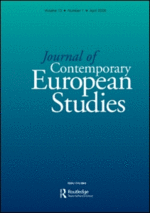Brown and white men and other stories ...

Courtesy of Washington Post A cartoon that appeared recently in the Washington Post reminded me of a topic I have often discussed in classes and have written about in my book Islam in Europe , notably the construction of the Muslim woman as "subaltern". The cartoon powerfully points out the aporia of the woman over whose body two men, representing ‘Islamic traditionalism’ and ‘European secularism’ respectively are challenging each other. Gayatri Spivak has pointed out this aporia in her discussion of widow self-immolation in colonial India: "The relationship between the imperialist subject and the subject of imperialism is at least ambiguous. The Hindu widow ascends the pyre of the dead husband and immolates herself upon it. This is widow sacrifice… The abolition of this rite by the British has been generally understood as a case of "White men saving brown women from brown men." White women-from the nineteenth-century British Missionary Registers to M





